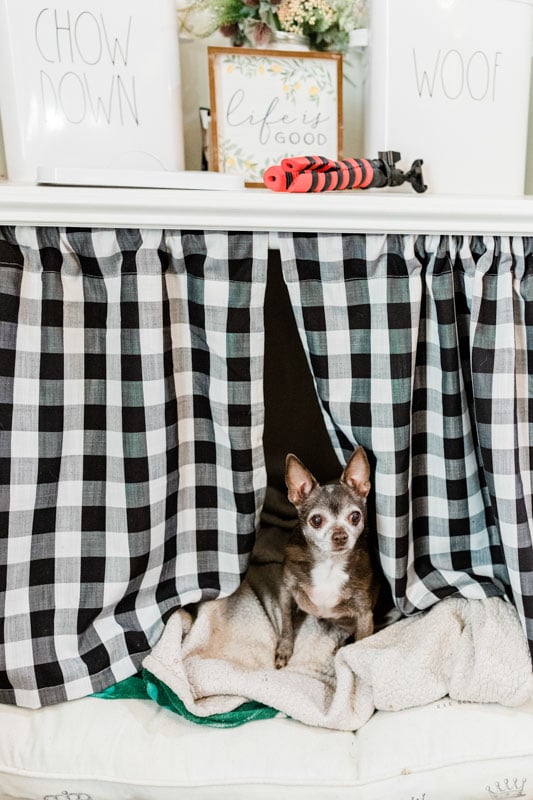10 Tips for Rescue Dog Owners
Disclosure: This post was sponsored by Tyson Pet Products, Inc; however any opinions expressed are my own.

Between myself and my grown children, we have six dogs! Out of the six, we have four rescue dogs. Our dog Boomer was an unplanned adoption. We actually went to our favorite pet store and we ended up adopting him as a 7-year old pup. He did not like certain people, and actually bit my husband on the nose the first day he was home! It's now been five years, and he can't even stay too far from my husband now.
He loves his forever home! We worked with our rescues over the years and are excited to share these tips from our experiences.

Please note we don't have any vet or expert experience, but these are tips we've learned over the years. We also are excited to introduce NEW Nudges® Dog Treats from Walmart.com.
Be Patient
Having rescue dogs, I can say from experience you need to have an intentional level of patience! A rescue dog is coming to a new home with new faces and routines, and it's all a lot to take in! Their experiences may also include trauma and they need time to heal. With our rescue dogs it was important to remember they are going to be on different schedules on how long they each took to train, and just acclimate in general to being in a new home.
Keep Tasty Food and Treats
Quick overview: The Nudges® Protein Biscuits are a quick treat made with real USA protein as the main ingredient, with no wheat flour. I love that they are all-natural, since that is important to us as a family and we also care about using natural pet products when we can, as well.
The Nudges® Jerky Chews are made with real USA chicken, and don't have fillers. My dogs absolutely love chicken, so these chews are a must to have for a tasty treat for our dogs for a reward for after exercise time. I love that I can feel good about giving our dogs these treats and don't have to worry about them having added fillers or ingredients they don't need in their diets. We love protein-packed treats for our dogs!
Be Kind but Set Boundaries
Being gentle and kind is such a big part of adopting any pet, and letting them bond with you. But for a rescue dog it can help create trust faster if you are kind but firm. You can't let your new pet think they are in charge, because in reality it's you! Your pet will need you to take the lead from day one
Train from the Beginning with Positive Reinforcement
Learn Signals and Build Trust
This is an important tip for everyone, but especially for homes with children. If you're taking in a rescue animal, be aware of when your new pet is uncomfortable or fearful. If your pet feels cornered or unsure of what's going on, they may end up acting aggressive. Let your pet have their space. At home we have several dog beds they can retreat to.
Be Scheduled and Provide a Routine
Dogs, like humans, thrive on routine! As you work with your pet to train and bond, keep a schedule of rest, playtime, and exercise, and of course meal and treat times.
Expect Some Misbehavior
Any of us who have adopted a pet in general know this is true! Whether it's a puppy or an older dog, bad habits and behaviors are something all of them will eventually show. Remember this is part of their background! As we mentioned before, patience, redirection and lots of positive rewards can help! If your pet is very troubled or aggressive, don't hesitate to enlist the help of experts. A dog training school might be the right fit for your pet.
Crate Train if Needed
Looking way back, I remember some of the pets we adopted when I was younger had no previous house training whatsoever. For house training, it depends on your dog and the setup of your home, of course, but we had success with crate training. You can research this online or ask your vet for tips. Even if your rescue pet was previously house trained, you might find that with the big transition to a new home you have to re-train your pet.
Give them Their Own Safe Space
We were excited recently to make a DIY pet den for one of our dogs. Even if their own space is a cozy open crate, our pets love a space they can retreat to if they are tired or overwhelmed. Our dogs routinely nap in their spaces during the day- if they can't find a spot on the floor in the sunshine! It's a great idea to have a space the pet knows is their own, they can retreat to if there is a lot of noise or they are feeling stressed.
Exercise and Play!
As we all know, rescue pets with a traumatic or unloving past probably haven't been exercised properly. Ask your vet how often and what kind of exercise they recommend for your particular breed and the age/health of your dog. Ours are smaller dogs, so they need exercise routinely but get very tired if they are asked to exercise for a longer length of time. Our older pet does not have as much stamina. Still, each one needs activity to promote their physical and mental health. We take a long treats sometimes to remind them exercise is fun, and as a reward.
How do you reward your pets, and do you have a rescue animal? We would love to hear your story in the comments or on Facebook. If you have a cute pet photo (rescue or not), be sure to share! We love our furry friends and always want to promote positive stories of pets finding their forever home! Thanks for reading!
















